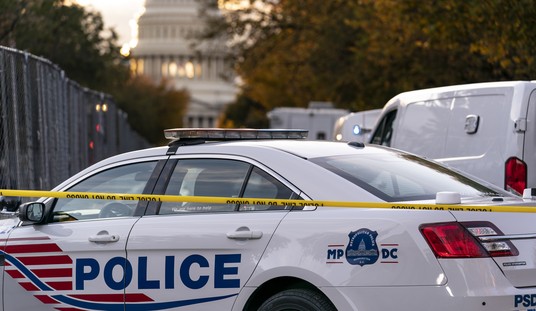The New York Times has responded to an angry letter written by Rev. Jeremiah Wright — more than a year ago. The letter resurfaced this past week, and it contains accusations of misrepresentation and “duplicitous behavior” on the part of the Gray Lady in reporting that Barack Obama had disinvited him from his official announcement for his presidential run. Wright had originally been scheduled to give the invocation, but Obama thought better of it, for reasons much better understood now than in March 2007.
The NYT’s political editor shrugs off Wright’s charges:
Ms. Kantor conducted herself professionally and honestly throughout her dealings with Mr. Wright. She did what any journalist would do: She brought the news he conveyed during the interview to the attention of her editors, including me. We decided to do what a newspaper does: to present that news to our readers, accurately, fairly and as quickly as possible. Ms. Kantor in no way misrepresented the nature or purpose of the interview; as soon as it was ready for publication, we published exactly the longer story we told Mr. Wright we were working on and that he referred to in his letter.
Putting aside the question of why a letter that is more than a year old is suddenly getting new circulation, it is worth noting that at no time has Mr. Wright challenged the accuracy of either story written by Ms. Kantor – both of which, given the events of the last several weeks, seem remarkably prescient about the potential political peril in the Obama-Wright relationship.
In a contest pitting the New York Times against Jeremiah Wright, it’s difficult to decide who to cheer. It’s like watching Saddam Hussein and Ayatollah Ruhollah Khomeini go to war. The best outcome is to have both of them lose credibility in equal measure.
However, the Times has the better argument here. If Wright didn’t expect Jodi Kantor to report on his exclusion from the Obama event, he either operated under extreme naiveté or flat-out foolishness. The profile that the Times actually published more than a month later might have seemed a little stinging to Wright at the time, but in retrospect, Kantor really missed the boat in a big way. Eleven months later, these passages seem extremely tame:
Still, Mr. Obama was entranced by Mr. Wright, whose sermons fused analysis of the Bible with outrage at what he saw as the racism of everything from daily life in Chicago to American foreign policy. Mr. Obama had never met a minister who made pilgrimages to Africa, welcomed women leaders and gay members and crooned Teddy Pendergrass rhythm and blues from the pulpit. Mr. Wright was making Trinity a social force, initiating day care, drug counseling, legal aid and tutoring. He was also interested in the world beyond his own; in 1984, he traveled to Cuba to teach Christians about the value of nonviolent protest and to Libya to visit Col. Muammar el-Qaddafi, along with the Nation of Islam leader Louis Farrakhan. Mr. Wright said his visits implied no endorsement of their views. …
Mr. Wright preached black liberation theology, which interprets the Bible as the story of the struggles of black people, who by virtue of their oppression are better able to understand Scripture than those who have suffered less. That message can sound different to white audiences, said Dwight Hopkins, a professor at University of Chicago Divinity School and a Trinity member. “Some white people hear it as racism in reverse,” Dr. Hopkins said, while blacks hear, “Yes, we are somebody, we’re also made in God’s image.”
That’s about as close as Kantor ever got to the incendiary rhetoric offered by Wright. She apparently didn’t bother to research the videos and copies of sermons easily available, and so missed the exhortations that 9/11 was America’s “chickens coming home to roost”, that black people should sing “God Damn America”, and that the US had created HIV-AIDS as a tool for genocide against people of color. One wonders why Wright bothered to complain about the minor issue at hand while all of these political land mines remained just below the surface — and why Kantor and the Times never bothered to research Wright in more depth.
The entire national media missed the Wright Stuff, so it’s not entirely fair to hold the Times and Kantor solely responsible for the failure. However, the paper had a reporter assigned to the story, and clearly Kantor had an inkling of the kind of damage Wright could do to Obama’s campaign. Did the Times deliberately pull its punches, even after getting slapped by Wright over Kantor’s early reporting? And more to the point, did the Times pull its punches because Wright complained about their early coverage?







Join the conversation as a VIP Member